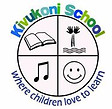top of page


Primary
Key stages 1-2
"We are educating children for a future we can't possibly predict...the best we can do is help them develop the capacities of creativity and adaptability."
Sir Ken Robinson

Hi from Year 5!

Year 4 invention assembly!

Inter class reading!

Hi from Year 5!
1/6
Primary - Key Stages 1 and 2
Year 1 and 2 are the Key Stage 1 classes. In KS1 Numeracy and Literacy are priorities at this early Primary stage, though Science, Arts, Humanities and PE contribute to the diverse and lively curriculum.The children also enjoy a weekly STEM session which involves learning through experimentation, review and trying again. With many fascinating resources and activities, this is often the high-light of their week!From Year 1 the children are generally ready to read simple books, using the popular Oxford Reading Tree scheme as well as Usborne, Bug Club and WorldReaders for a broader approach.For those with English as a Second Language (ESL) we provide extra tuition to help them catch up and progress smoothly in all aspects of their learning.
Year 3, 4, 5 and 6 form the Key Stage 2 section, or Upper Primary. In KS2 learning is still broad, inspiring and as practical as possible. French is introduced as an option and Kiswahili is still widely used and taught both through 'Jumatano' day, when all lessons are taught in Kiswahili (as much as possible).and more formal Swahili lessons, as well as with wonderful Kiswahili drama presentations.

bottom of page

_edited_edited_e.png)